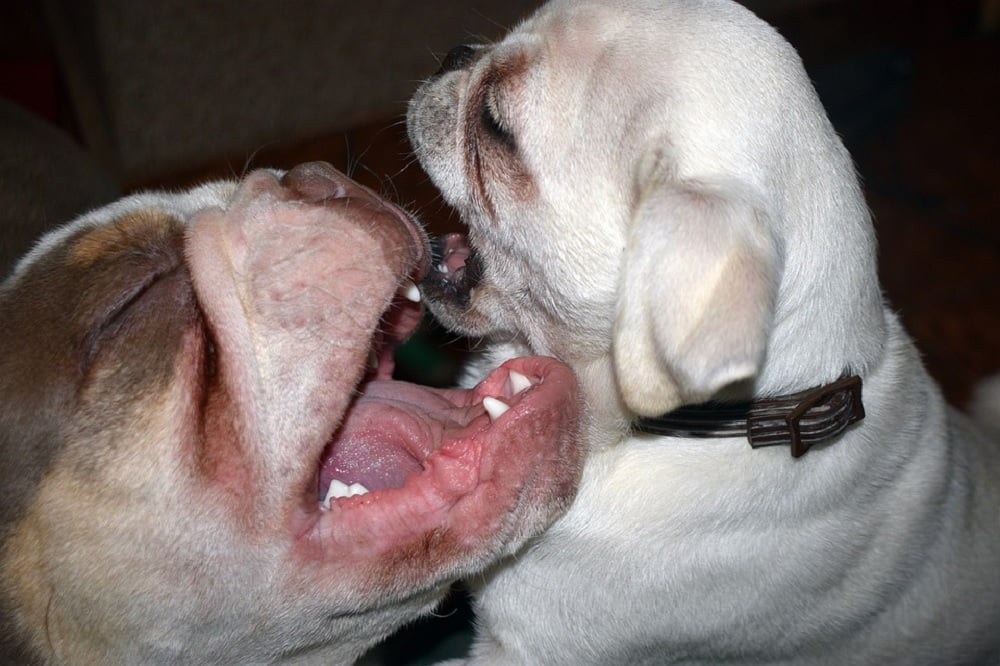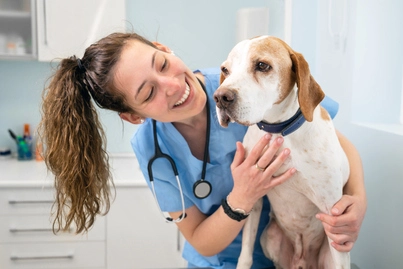Phoebe Buffay sang about smelly cats, but have you ever smelled a smelly dog? When a dog smells, everyone, including your neighbors a whole street away from you, will know it.
Naturally, we all want our dog to smell like our favorite Yankee Candle, but that’s simply not possible. Your dog is going to absolutely reek during some times in his life. In fact, your dog may even smell a little bit like milk that should have been tossed away over a week ago. Your dog’s ears, face, poop, and breath can all smell sour at times!
One of the biggest challenges for many pet owners through time has been the task of attempting to figure out why their dogs have suddenly started to smell sour. This may make you confused, all while you try hard not to puke at the smell. It can also be very worrying, especially if there’s a reason to suggest that your dog is suffering with their health.
If you’re wondering why your dog smells sour, there is a simple answer. Your dog can smell like sour milk for a range of different reasons, such as if they have a yeast infection, anal gland issues, dietary habits, or your dog may have even rolled through something that smells sour while they were playing in the garden.
For more information, read on…

My Dog Smells Like Sour Milk – Help!
You will usually find that your dog smells like sour milk, and the issue can be rectified without many problems at all. It is actually rather common for a dog to smell like sour milk, and it’s something that your vet can solve in a split second in most cases.
In this article, we’re going to dive into some of the reasons that your pet may develop this strange sour milk smell on their fur. We’re also going to tell you how you can stop your dog from getting this issue in the future. You can handle the problem much better in the future if you know what you’re up against.
1. UTI
Dogs are highly susceptible to developing Urinary Tract Infections, known as UTIs. It’s one of the main reasons why your dog may be smelling sour. UTIs tend to be the result of bacterial infections. This is when flora in the gastrointestinal tract and skin gets into your dog’s urinary tract. Eventually, the bacteria starts to make its way around the urinary tract. As such, your pet can become infected. Your dog may smell a little bad after this happens – perhaps even like sour milk! It is likely that they will smell especially bad in their rear end.
Your female dogs are much more likely to have a UTI than your male dog, but a male can still get them. They are especially likely if your dog already has a health condition that may make them more susceptible to getting urinary tract infections. Some examples of these infections include kidney disease or issues with the bladder.
You will generally find that your dog is crying or whimpering a lot more than usual if they have a urinary tract infection. In addition to this, the dog will be more likely to try to pee in your home, and they will need to leave the house more often to relieve themselves. In some situations, the dog may even have bloody urine.
The sour odor will usually manifest because your dog is licking their genitals a lot. As such, the infection’s smell will then come from their mouth when they are breathing.
Urinary tract infections can be very unpleasant for your dog, and in a lot of cases, a dog won’t even show that many signs that they have an infection. The sour odor can be a good clue, however. If you think that your dog may have a urinary tract infection, then you should take them to the vet as soon as possible.
In the vast majority of cases, urinary tract infections are benign to your dog’s long-term health and can be treated very easily. With that being said, they can cause your dog a lot of pain, and on occasion, they can be a symptom of something much more worrying, like cancer.
2. Yeast Infections
A UTI isn’t the only infection that can cause your dog to smell sour. Your dog may also smell sour if they develop a yeast infection. This is a condition that can cause the skin to become inflamed. The infection is likely to be particularly prominent between the paws, in the ears, and in the folds of your dog’s skin. As such, it’s fairly likely that this is why your dog’s ears are smelling sour.
Usually, this condition occurs because yeast is reproducing in your dog’s skin at a rate that isn’t normal, and this can then cause an infection and inflammation. It’s not super common unless your dog has a compromised immune system, either because the immune system isn’t working as it should or because it has been suppressed with tablets.
There are a number of medications that your dog may be prescribed that can cause yeast infections to develop, however. This is because the medications can reduce the number of good bacteria that helps to ensure that the level of yeast is manageable. As such, your dog may be more likely to develop a yeast infection. If you have any worries about whether your dog may get a yeast infection from taking a certain kind of medication, it’s a good idea to speak to your vet for further advice.
Connect with a verified veterinarian in minutes. No waiting for appointments or office hours. No high fees. Your pet's health made convenient and worry-free.
It’s also worth mentioning that yeast infections are far more likely to occur in dogs with many skin folds on their bodies. They are naturally more susceptible to developing this condition.
There are a number of breeds that have lots of skin folds on their bodies. For instance, the dachshund, boxers, chihuahuas, poodles, basset hounds, west highland white terriers, and shetland sheepdogs. You may find that these breeds are more likely to have faces and ears that smell sour.
There are a few main symptoms to look out for. You can usually tell if your dog has a yeast infection because he or she will have redness or itching on their skin or even in the ears. They may also lose a lot of hair, have some open wounds on the skin, the skin may change color, or it may be flaky or crusty looking in appearance. The sour or overly sweet-smelling odor may also come with these symptoms. It ultimately depends on how severe the yeast infection is.
If you smell a strange odor coming from your dog’s ear and face, and you notice that they are scratching or chewing their skin for long periods, then it’s a good idea to visit your dog’s vet. You may also notice that your dog is shaking his head a lot – this can be a sign of a yeast infection too.
Yeast infections usually aren’t a massive problem, but it’s important to note that they can sometimes indicate a more serious problem with your dog’s health.
3. Their Accessories Smell
You may find that your dog doesn’t even smell because of a health condition. Instead, your dog’s accessories, such as his collar or harness, may smell because they haven’t been cleaned in a while. For the most part, these sorts of smells aren’t often sour, but it can happen. This could be a likely cause of that strange smell emanating from your pooch.
This is a particularly big risk if you tend to walk your dog in the countryside, in places where there is a lot of water, mud, dirt, or even animal dung. If you do tend to walk through these sorts of areas a lot, it’s a good idea to thoroughly clean your dog’s harness and collar to keep them both clean. If you don’t do this, then there’s a good chance that the smell can cling to your dog’s fur, making them smell pretty bad even when they aren’t wearing their collar or harness.
Some dogs like to roll around in nasty-smelling things, such as fox poop. Fox poop can smell like sour milk, hence the smell! If you want to get rid of it then you’re going to need to give your dog and his collar a thorough cleaning session.
If you think that the collar or harness may be the cause, it’s worth changing them out for a different alternative. If the sour milk smell goes away, then it’s probably because of the accessories, in which case you’ll need to throw them out.
Likewise, these sorts of smells can also cling to your dog’s bed, so it’s a good idea to clean that every once in a while too. Things like fur, dirt, bodily fluids, and more can cling to your dog’s bed, especially if your dog spends a lot of time in it. If you don’t want your dog or his bed to constantly smell, make sure that they are clean, in addition to all of their items. To save yourself some time, it may also be helpful to put a blanket in the bed that you can easily wash.

4. Problems With the Anal Glands
Your dog may be having issues with his anal glands if they smell sour. For reference, your dog’s anal glands are by your dog’s rectum – they will likely have a watery fluid that looks a little yellow in terms of hue.
Anal gland problems usually aren’t a big deal. You can fix them without much trouble, and they are unlikely to be very serious.
It’s worth noting that a lot of dogs have a hard time completely emptying the anal glands without assistance. This is a big problem, especially for small breeds of dogs. If your dog doesn’t empty his anal glands enough, it may cause them to swell up and become more sensitive.
If you are concerned that your dog may have an issue with their anal glands, it’s always a good idea to go for a vet visit to be safe. This way, your dog can empty the glands. If you prefer, there are ways to empty the glands yourself, but it’s always better to speak to a vet for advice.
Conclusion
We all know that dogs can smell pretty foul on occasion. It doesn’t matter what you do – your pooch is probably going to make you wish that you didn’t have nostrils every now and again.

